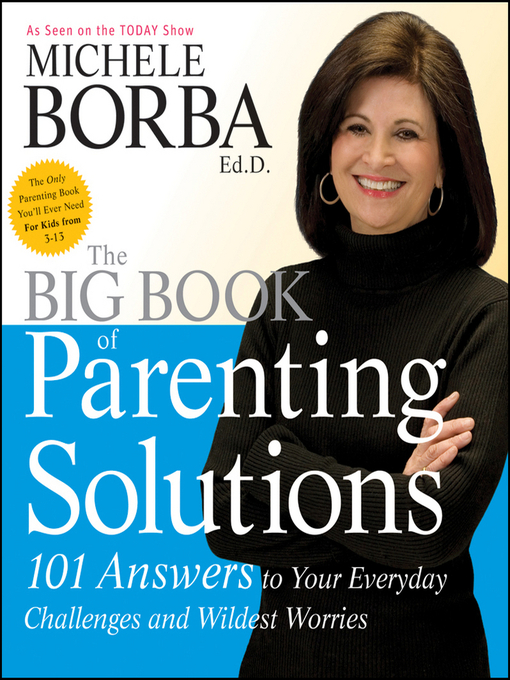Research that puts the “Nature vs Nurture” debate into a whole new dimension. Four proven strategies that boost kids’ IQ and all are unplugged and don’t cost a dime (Yes! Yes! Yes!).

It’s Not All Nature, Folks!
Well, well, well. It looks like we can finally ease our parenting guilt (a little anyway) enough to put down those flash cards and forget playing those brainy baby tapes.
It turns out parents really are their kids best IQ booster.
For nearly a century, child development experts have pondered just how much parents matter in how their kids turn out. Fresh research hit the AP wires and the findings are profound when it comes to parenting. So read carefully this data”:
“Firstborn sons have higher IQs than their younger brothers because of how they are raised, and that difference is NOT due to genetics!”
Wow! It seems researchers finally figured out that parents do make a difference!! And for those of you who are first-born (I can hear you now, “I knew I was smarter!”) pipe down a bit. After parents read what follows you won’t be gloating quite so much.
The Important Norwegian IQ Study
The study came from Norway lead by a psychologist, Petter Kristensen. Over the past decade Kristensen and a group of researchers meticulously analyzed IQ scores of 250,000 men. All the men took the IQ test when they were 18 or 19 years old and were required to do so as draftees entering the Norwegian Army. Though no women were involved in the study, the researchers contend that the same results would happen for women. (I know, I know. Another study that assumes that women are going to turn out the same as men….but….)
Results found that the oldest child is smarter than next oldest sibling by an average of 2.3 points, who is turn beat the third-born brother by 1.1 points.
But here is a fascinating detail: if the eldest child dies, the second sibling becomes the smartest one. And that has is meaningful. The study also found that the edge is due to parenting:
It’s not just birth order or the gene pool that’s boosting those IQ points. Family dynamics and how first born children are treated in their home environments play a key role.
While 2.3 points may seem measly, in today’s test-crazed society they can be just enough to give a child an academic edge.
Those two points could be the difference between earning the grade of a B+ or an A; going to a state school or a university; entry into a special educational program or that scholarship.
Many schools these days require IQ test and a score of 132 in order for a child to get into their gifted program. A two point lower score could mean the cut-off to entry.
The key question is this: How are we parenting our eldest differently that’s giving them those added IQ points over their siblings?
Researchers hypothesized that parents used four strategies more with our first born that gives that child the IQ edge over their younger sibling. Here comes the best part: all strategies are simple, and none cost a dime. And we can (and should) use the same tips with all our kids.
Here are four take-away tips from this important Norwegian study that you can use with your children. I shared these on the TODAY show with Meredith Vieira and Nancy Synderman, and–as you might have gathered–it was an animated chat! Turns out Nancy was the oldest, I’m an only and Meredith is the youngest. Guess who took some heat?
4 Strategies that Boost Kids’ Intellectual Edge
1. Talk naturally to your child (just talk, and talk, and talk)
One of the strongest correlations to IQ is a strong verbal ability. The best way to nurture your child’s verbal skills is by just plain talking and talking and talking to them.
Researchers find that we talk far more with the first child which gives our eldest kid an intellectual advantage. So do these simple language-based strategies with your child. Just be sure to use the same simple techniques with all your children.
Point to things in context. (“Look at the flower!” “See the dog. Look how happy he is. His tail is wagging!”)
Describe what you are doing. (“I’m putting in an egg.” Or “I’m pulling up the blanket.”)
Plop your child next to you as you do a task and discuss the concept. (“I’m going to make go shopping, but first I’m going to make a list.”)
Ask your child what he is doing. Just ask naturally.
Be a sportscaster as your child by describing to exactly what he is doing: “You are picking up the red block. Oh, you’re going to put the block on the blue one. I see, you’re making a house for the horse!”
Read and read and reread those picture books with your child.
Don’t worry if your child can’t talk! He’s learning language from you.
2. Focus on your child with full presence
Researchers contend that eldest children generally have higher self-esteem. They have stronger confidence and some of that is because they spend more uninterrupted time with us. One reason: there isn’t another sibling to compete with. Don’t feel guilty if you have more than one child. Instead, just consciously look for ways to involve your second, third or fourth (or whatever number of kids).
Many parents set up appointments on the calendar. Tuesday at 10 am: Johnny’s With Mom. The time slot doesn’t have to be lengthy. Kids love noticing it’s “their time” to be one-on-one with a parent. Utilize the car pool. Look for those moments when the other siblings aren’t there to connect solo with that child.
3. Treat your child as if he or she is capable
We give our elder kids more responsibilities and we just plain expect more of them at a younger age. How you are treated does become a self-fulfilling prophecy. So just make sure to give your second, third, fourth (or whatever) kids responsibilities as well.
“You’re such a big boy. I bet you can help Mom put the laundry in the dryer.”
“I know you’re ready to make your bed! Let’s get you a comfy cover so you can pull it up.”
“You’re such a good helper! You and sister and work together.”
An interesting piece of trivia is that almost all American presidents and the first astronauts were the eldest. Studies show that first born kids are also more likely to be leaders. Most researchers contend that it’s because we gave the eldest child a bit more responsibility.
4. Let your child tutor younger siblings
The eldest child has another benefit: he has a younger sibling to help.
“Can you teach your brother how to read?”
“Will you show your sister how to turn on the computer?”
Teaching someone a skill not only helps the tutored, but also helps the tutor. In fact, in many cases, the oldest child gains the most (IQ wise anyway) from teaching his younger brother or sister.
The Bottom Line
The key message in this important study is that parents are their children’s best IQ boosters.
So put down those flash cards and unplug those brainy baby tapes. You do make a difference in how your child turns out!
Now if we could just figure out a way to redefine success so we don’t get so crazed thinking it’s all about IQ. In the real world, research shows that IQ doesn’t make much of a difference on achieving success. What does matter: perseverance, confidence and goal-setting.
Dr. Michele Borba, Parenting Expert

I am an educational psychologist, parenting expert, TODAY show contributor and author of 22 books.
You can also refer to my daily blog, Dr. Borba’s Reality Check for ongoing parenting solutions and late-breaking news about child development.
Follow me on twitter @MicheleBorba
©Michele Borba 2011. Ideas from this blog are from The Big Book of Parenting Solutions. For more tips about this or other child-rearing topics refer to specific chapters: Oldest Child (pg 23) Only Child (pg 26) Sibling Rivalry (pg 29); Twins and Multiples (pg 37); Youngest Child (pg 41); Adopted (pgpg 2); Divorce (pg 8) Middle Child (pg 19)


